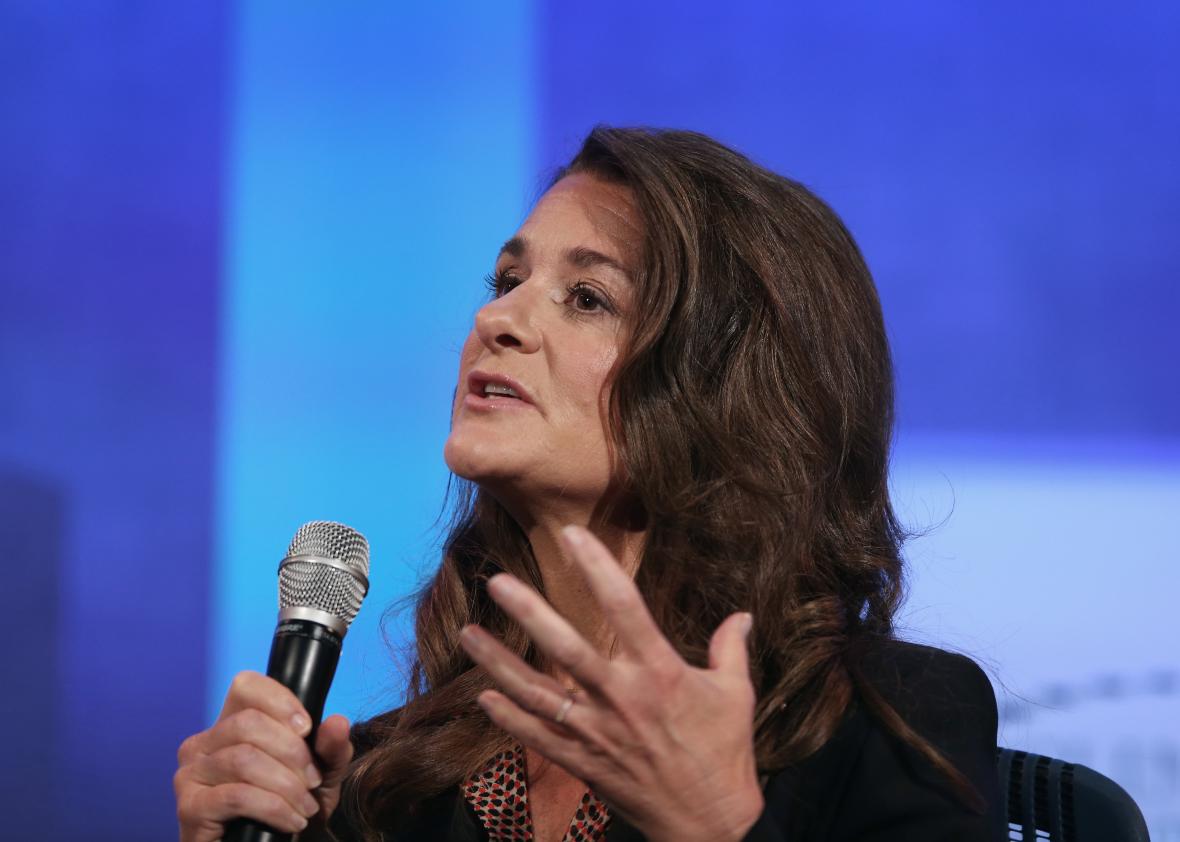In its annual letter published Tuesday, the Gates Foundation reports on the impact of its initiative to get contraception into the hands of women around the world. Placing contraceptives alongside vaccines as “one of the greatest lifesaving innovations in history,” Bill and Melinda Gates write that 300 million women in “developing countries” now have access to modern contraception, about a 50 percent increase from 13 years ago.
The foundation is part of Family Planning 2020, a coalition of government agencies that seeks to get contraception access for 390 million women in the developing world by 2020. Meeting that goal is essential to a lot more than women’s personal and economic empowerment: It would be a giant step toward mitigating global poverty. “No country in the last 50 years has emerged from poverty without expanding access to contraceptives,” the letter states, because the ability to avoid or space out pregnancies allows families to keep their kids in school, earn more income, and require less financial assistance from the government.
Melinda Gates attributes her own personal and professional success to birth control in a companion essay she published in Fortune. “It’s no accident that my three kids were born three years apart—or that I didn’t have my first child until I’d finished graduate school and devoted a decade to my career at Microsoft,” Gates writes. “My family, my career, my life as I know it are all the direct result of contraceptives.”
But outside the U.S. and other wealthy nations with advanced medical systems and reproductive health care, access to birth control can be “a matter of life and death,” Gates writes, crediting family-planning services with keeping 124,000 women alive in 2016. Without reliable contraception, women and children are less likely to be healthy and more likely to perish during or after childbirth. In the areas where the Gates Foundation focuses its work, spacing out children by at least three years doubles the chance of a child’s survival to age 1.
In a better world, this kind of unambiguous data would engender widespread support for programs that give women the resources they need to determine for themselves when, whether, and how they give birth. In our actual world, Donald Trump reinstated and expanded the global gag rule, which cuts U.S. funding from any foreign organization that provides abortion care, information, or referrals, even though U.S. aid already can’t go toward abortion care itself. This means some of the world’s most comprehensive, far-reaching programs in the reproductive health sphere are now ineligible for U.S. aid money. Previous research has connected the rule to spikes in unplanned pregnancies and, ironically, abortion rates in sub-Saharan Africa. Gates’ essay predicts that Trump’s reinstatement of the gag rule will bump up the number of women who want to prevent pregnancy but don’t have access to contraception, a statistic that currently sits at 225 million women worldwide.
There are some novel products and programs that show promise in tackling that gap. A Pathfinder International initiative in Burkina Faso to supply clinics with and educate women about intrauterine devices has been so successful, the organization recently received two grants—nearly $10 million in total—from the Gates Foundation to study how best to arm women in several countries with the family-planning tools they need.* The foundation’s annual letter also expresses excitement for a new injectable contraceptive that rural women can administer themselves, providing protection from pregnancy for three months at a time. Proponents of the global gag rule will be happy to know that such advances in contraception technology and access have at least one desired effect that abortion restrictions don’t: lower rates of unplanned pregnancies and abortion.
*Correction, Feb. 16, 2017: This post originally stated that Pathfinder International got a $10 million grant from the Gates Foundation. It got two grants totaling nearly $10 million.
